February 4, 2022
Air Date: February 4, 2022
FULL SHOW
SEGMENTS
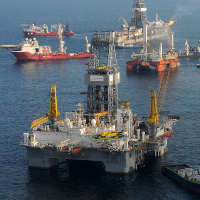
Biden Oil and Gas Leases Blocked
View the page for this story
Despite pledging to dramatically cut U.S. greenhouse gas emissions, the Biden administration approved the sale of oil and gas drilling leases across 80 million acres of the Gulf of Mexico in November 2021. A coalition of environmental groups sued the administration to block the sales and on January 27, a federal Judge revoked the deal, citing climate concerns. Vermont Law School Professor Pat Parenteau joins Host Steve Curwood to discuss the case and what it says about how seriously the Biden administration is taking its promises to phase out fossil fuels. (11:44)
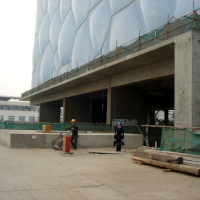
Sustainability and the Beijing Olympics
View the page for this story
The Winter Olympics in Beijing feature covid protocols and new sustainability measures. Natalie Ma, a reporter at the state-owned paper Shanghai Daily, joins Host Steve Curwood to discuss the ways China is cutting carbon emissions at the games, on-the-ground conditions in Beijing, and the games’ future implications for local business owners in Chongli and surrounding regions. (09:16)
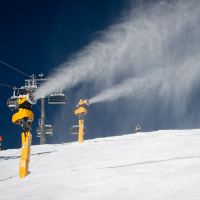
Winter Olympics in a Warming World
View the page for this story
China and the International Olympic Committee say the Winter Olympic Games in Beijing have many elements of sustainability. But critics point to the environmental impacts of creating an alpine ski resort in an arid region, on the site of a nature reserve. And as Earth warms due to climate change, suitable places to host winter sports are disappearing around the globe. Carmen de Jong, a Hydrology Professor at the University of Strasbourg, discusses the past and future sustainability of the Winter Olympics with Bobby Bascomb. (07:56)

Beyond the Headlines
/ Peter DykstraView the page for this story
For this week's trip beyond the headlines with Environmental Health News Editor Peter Dykstra, he joins Host Bobby Bascomb to tally up the best cities for bicyclists in the United States. After that, the two look into why Amazonian birds appear to be shrinking over time. And, from the history books, 52 years ago ground was broken for the Chernobyl Nuclear Power Plant. (05:00)
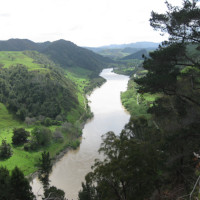
A Fight Over Rights of Nature in Florida
View the page for this story
Rights of nature laws elevate nature to have similar legal rights to humans, and in Orange County, Florida local communities are citing these laws to try to protect water ways from development. Host Bobby Bascomb speaks with journalist Katie Surma about the ongoing battle between Orange County and the state legislature over granting rights to nature. (07:52)
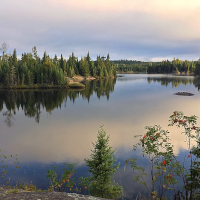
Boundary Waters Mining Leases Canceled
/ Dan KrakerView the page for this story
For years Twin Metals Minnesota has sought to mine for copper and nickel just outside the pristine Boundary Waters Canoe Area Wilderness, but the Biden administration recently cancelled two federal mining leases the company needs to begin operations. Dan Kraker is a reporter for Minnesota Public Radio and has the story. (04:45)
Show Credits and Funders
Show Transcript
220204 Transcript
HOSTS: Bobby Bascomb, Steve Curwood
GUESTS: Carmen de Jong, Natalie Ma, Pat Parenteau, Katie Surma
REPORTERS: Peter Dykstra, Dan Kraker
[THEME]
CURWOOD: From PRX – this is Living On Earth.
[THEME]
CURWOOD: I’m Steve Curwood.
BASCOMB: And I’m Bobby Bascomb
A federal judge has blocked Biden’s oil and gas leases in the Gulf of Mexico.
PARENTEAU: The courts have ruled over and over again that when you develop fossil fuel resources you must look at the emissions, disclose that to the public and wait before you decide to go forward so the fact that none of that was done here took a lot of people by surprise and the court has set it to right.
CURWOOD: Also, environmental concerns around the winter Olympics in China.
JONG: So, I think the extent of landscape destruction and the extent of water scarcity problems and extent of snow making are a very different issue in Beijing. Nonetheless other games have also caused a lot of environmental destruction.
CURWOOD: That and more this week on Living on Earth – Stick Around!
[NEWSBREAK MUSIC: Boards Of Canada “Zoetrope” from “In A Beautiful Place Out In The Country” (Warp Records 2000)]
[THEME]
Biden Oil and Gas Leases Blocked
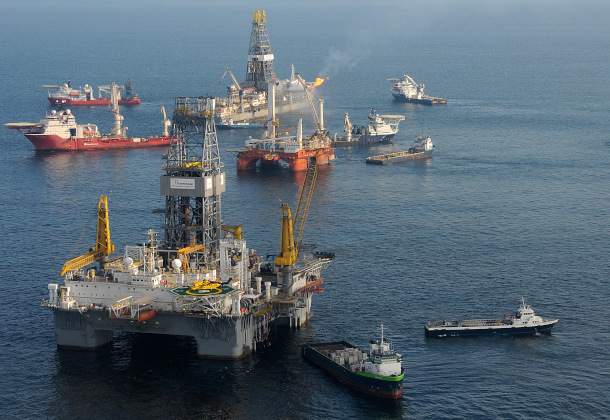
A mobile offshore drilling unit in the Gulf of Mexico. (Photo: Petty Officer 3rd Class Patrick Kelley, Flickr, Deepwater Horizon Response, CC BY-ND 2.0)
BASCOMB: From PRX and the Jennifer and Ted Stanley Studios at the University of Massachusetts Boston, this is Living on Earth. I’m Bobby Bascomb.
CURWOOD: And I’m Steve Curwood.
Action on Joe Biden’s campaign promises to address climate change appear to be falling short, and it’s not just the stalled legislation on Capitol Hill. Back in November at COP 26 President Biden pledged to the world that he would dramatically cut US greenhouse gas emissions. But just days later his administration approved the sale of oil and gas leases across 80 million acres in the Gulf of Mexico starting with 1.7 million acres assigned to Chevron and Exxon Mobil. The Department of the Interior estimates more than a billion barrels of oil and nearly four and a half trillion cubic feet of gas could be extracted there over the next 50 years. That’s roughly equivalent to the annual emissions from 130 coal-fired power plants. A coalition of environmental groups sued the administration to block the sales and on January 27th, Judge Rudolph Contreras of the U.S. District Court in Washington D.C. revoked the deal, citing environmental concerns. He directed the Department of the Interior to conduct a new environmental analysis that examines the impact on climate that could result from these lease sales. For more I’m joined now by Vermont Law School Professor Pat Parenteau. Pat, welcome back to Living on Earth!
PARENTEAU: Thanks, Steve. Good to be with you.
CURWOOD: Now, some of the plaintiffs in this case say that it's a landmark decision by this judge Contreras in Washington. Why do they think it's such a big deal?
PARENTEAU: Probably because of the size of the sale that we're talking about. This would be the biggest oil and gas sale in US history. Some 80 million acres of the Gulf of Mexico was up for bid and the bids that came in were over a million acres right off the bat. So the scale of this proposed oil and gas development is unprecedented, which is quite surprising, isn't it for an administration vowed to reverse our reliance on oil and gas and other forms of greenhouse gases.
CURWOOD: So I'm wondering, why did the Biden administration push for more oil and gas drilling in the Gulf of Mexico in the first place? I mean, I thought he had campaigned against this.
PARENTEAU: They definitely had campaigned against it and the administration is right to point out that they were ordered by another federal judge in Louisiana, this judge Contreras sits in the District of Columbia, and is an Obama appointee, which is not insignificant. And the judge in in Louisiana who's a Trump appointee had ordered the Biden administration to proceed with oil and gas leasing, including this very lease sale, because he ruled that the administration doesn't have the authority to put a pause on oil and gas leasing while they think about the future of the oil and gas program including its effects on climate. So you have one judge ordering the administration, full speed ahead and now we have another judge saying, wait a minute, that doesn't mean violate the law, it means think about what you're doing, look before you leap. So that’s kind of where we are now.
Breaking News: A federal judge revoked Gulf of Mexico oil and gas leases, ruling the Biden administration failed to consider climate change when it sold them. https://t.co/CKlDczpgAx
— The New York Times (@nytimes) January 28, 2022
CURWOOD: Where’s the Biden administration in this? So you have the Trump judge appointee, who says, no, you must go ahead. To what extent could the Biden administration push back against that order? Seek a stay or get an appeal or somehow block more leasing, it looks like they just went ahead and started leasing.
PARENTEAU: Well, they did appeal and they took strong issue with the Louisiana district judge's opinion and said that it was wrong and that they were asking the Fifth Circuit Court of Appeals to overrule it. But to your point, that Biden administration did not ask for a stay. And so when the Biden administration was telling everyone well, the judge is making us do this, that wasn't entirely true because they could have sought a stay and might likely have gotten one, based on some pretty strong arguments that the Louisiana judge was wrong in his decision, and certainly had not taken into account the fact that the prior proposals for lease sales in the Gulf did have these serious legal flaws, which have now come to light in judge Contreras' decision.
CURWOOD: So Pat, I am still scratching my head. Why is the Biden administration sort of wrapping itself in the black robes of a judge to halt oil and gas leasing in the Gulf of Mexico, when the President campaigned pretty hard that he was going to take on climate change? Why do they have to be ordered by a judge to not do what they say that they or they claim they wanted to do?
PARENTEAU: Well, you know, it does provide the administration with some political cover, doesn't it, after all. On the one hand, the administration was saying we offered this lease because we were ordered to do so by a court, the Louisiana judge. Now they can say, well, we're going to stop leasing, because we've been ordered to do that by another judge whose opinion we think is more well-grounded than the first judge. So I don't know whether this is true. But certainly the administration can legitimately claim now that they've been ordered to conduct this further environmental review and to put a hold really, on the leases. The leases have not been issued, that's significant here, if they had been issued, that changes things quite a bit. I mean, that implicates compensation, it's more difficult to cancel a lease. So the administration really is in a better position now to say to the world and to those that will criticize it for, you know, not proceeding with the leasing that well, we've been ordered to go back to square one and do a better job of documenting the impacts from this leasing and we intend to do that.
CURWOOD: To what extent does the administration's position imply that they lack backbone on this climate issue?

Anchor-handling tug boats battle the blazing remnants of the offshore oil rig Deepwater Horizon, which in 2010 had the biggest marine oil spill in history and provoked a range of adverse health effects amongst sea mammals like reproductive failure and organ damage. (Photo: U.S. Coast Guard, Flickr, CC BY-SA 2.0)
PARENTEAU: It certainly implies that they don't have a clear path, that they don't have a clear policy. You know, the President has been pretty quiet about oil and gas leasing in general. Of course, he's got a lot of other things on his mind these days, but you know. And even Secretary Haaland, who we all thought was going to be leading a lot of the efforts on turning away from using public lands, for example, for fossil fuel development, she's been pretty quiet as well. I think you have to conclude that given the politics of the moment and given the fact that the administration, let's say is not riding high right now politically and that they've got a lot of irons in the fire, it appears that this oil and gas leasing is like the proverbial third rail of politics and the administration is afraid I think, of taking too strong an action in reining in oil and gas development. We're seeing, for example, in Pennsylvania, there's a Senate race underway to replace Senator Toomey who's retiring, even the leading Democratic candidate in Pennsylvania is saying he does not agree with the President on phasing out fracking, you know, the development of gas at the Marcellus Shale in Pennsylvania. So, the politics of oil and gas are still extremely volatile. And it looks like the administration just doesn't—isn't sure of its footing on this question at this point.
CURWOOD: Hey Pat, the price of oil is through the roof, as we're recording this it's up to $87 a barrel. I mean, to what extent do we need more oil and gas production?
PARENTEAU: We really don't need more oil and gas. This is mostly for export what's being leased today and it's also—these leases are being banked for the future. The Department of Interior has calculated, there's already 75% of the leases that have been issued for the Gulf are not being developed now. So, there's no immediate need for this. And in addition, you know, the fact that these tracks are leased, doesn't mean there's going to be any oil and gas flowing from them for years. And so that's not going to relieve the increased price of gasoline at the pump, a lot of people would naturally be thinking perhaps, well, if we get these leases out, you know, I can spend less at the gas pump but that's not true. Those prices are determined by global markets and this leasing program isn't going to provide any immediate relief for that.
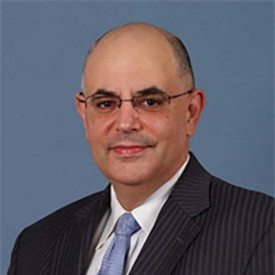
District Judge Rudolph Contreras (Photo: U.S. District Court for the District of Columbia)
CURWOOD: You use the word banking, I'm wondering if the oil and gas industry takes the leases that they have and puts them on their balance sheet. Saying you know, we have access to X amount of oil because we have Y number of leases that will give us this access.
PARENTEAU: Oh, they absolutely do that. They absolutely calculate the value of their assets, which is part of their sort of portfolio that they use when they go to a bank because, you know, the costs of developing oil and gas in the Gulf are incredibly expensive. Capital investment is huge for those rigs, and everything else that goes with it, that money is borrowed money, you know, the companies don't spend their own money or their stockholder’s money, they borrow the money from the bank, they use the reserves in the leases that they get as collateral for those loans. So yeah, it's all part of the carbon bubble that we're building and building with issuing these various leases, overvaluing the assets that they actually represent. You have the choice, you're either going to develop all of this oil and gas with billions of tons of carbon dioxide driving the climate even further into the danger zone, or you're not going to develop them, in which case those assets are really not worth what the companies are claiming.
CURWOOD: But for today and this quarter, what they can tell the banks and what they can tell shareholders, it does have this value associated with those leases?
PARENTEAU: It does. It's a false value. It's an inaccurate value but it's one they claim. It gives people the false impression that these companies are more solvent than they really are.
CURWOOD: I mean the Biden administration has pledged to cut greenhouse gas emissions by half, I believe, by the year 2030. If I have that correct and, of course, extracting and burning more oil doesn't help that cause and supporting the infrastructure for oil and gas that creates loans that then have to be paid back also doesn't help that cause. What can be done to limit future oil and gas leasing at this point?
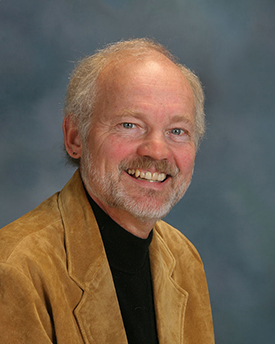
Former EPA Regional Counsel Pat Parenteau teaches environmental law at Vermont Law School (Photo: Courtesy of Vermont Law School)
PARENTEAU: Well, you know, we're at this inflection point in our history where we've got these emerging technologies, very promising — all of the electric vehicles that we're seeing coming to the market, but we need the infrastructure to support that and we need to enable people to afford these new forms of transportation EVs, and that's where the emphasis should be. But of course you've got to convince Congress of that, the administration has got to believe that it can do that and of course, stay in power so it can complete the job because, you know, if all we do is have a few years of kind of marginal improvements in the way we're transitioning away from fossil fuels, that's not enough. What we need is sustained effort over a long period of time, decades, in fact, with massive infusion of money, trillions, in fact, you know, that's kind of what we're facing. So maybe the Biden administration has that plan but if they do, they need to start sharing it with people so we can all understand what exactly is the plan because right now, we're going in the wrong direction.
CURWOOD: Pat Parenteau is a professor of environmental law at the Vermont Law School. Pat, thanks so much for taking time with us again.
PARENTEAU: Good to be with you, Steve. Thank you.
Related links:
- The Guardian | “US Judge Blocks Sale of Gulf of Mexico Drilling Leases Over Climate Concerns”
- EarthJustice | “Court Finds Massive Offshore Oil Lease Sale in Gulf Based on Faulty Legal Analysis”
- Read the decision by US District Judge Rudolph Contreras
- Food and Water Watch | “Court Halts Gulf Oil and Gas Leases Where Biden Administration Failed to Lead”
[MUSIC: Orchestra Baobab, “Gnawoe” on Specialist in All Styles, by Barthelemy Attiso/Rudy Gomis, World Circuit/Nonesuch]
BASCOMB: Coming up – As Olympic athletes go for gold in China, we’ll take a look at the sustainability of hosting the winter games in a warming world.
ANNOUNCER: Support for Living on Earth comes from Sailors for the Sea and Oceana. Helping boaters race clean, sail green and protect the seas they love. More information @sailorsforthesea.org. Support also comes from Friends of Smeagull the Seagull and Smeagull’s Guide to Wildlife. It’s all about the wildlife right next door to you! That’s Smeagull, S - M - E - A - G - U - L - L, SmeagullGuide.org.
[CUTAWAY MUSIC: The Dave Brubeck Quartet, “Kathy’s Waltz” on Time Out, SONY BMG ENTERTAINMENT]
Sustainability and the Beijing Olympics
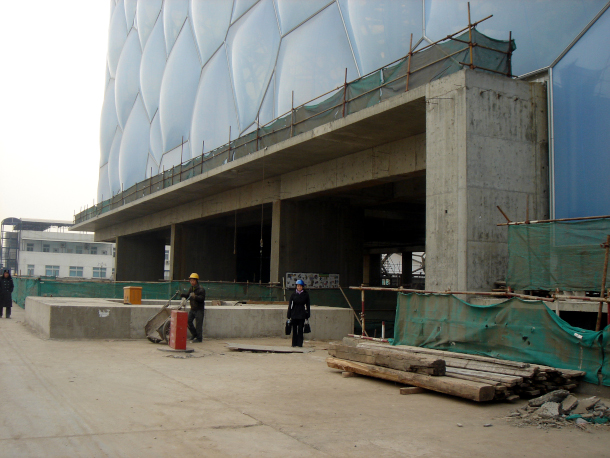
Construction occurs outside of the Water Cube, one of the six existing venues being reused for the Winter Olympics. (Photo: Xiaming, WordPress, CC-BY-SA 2.0)
BASCOMB: It’s Living on Earth, I’m Bobby Bascomb
CURWOOD: And I’m Steve Curwood.
The winter Olympics are officially underway and millions of people are tuning in to watch skaters, skiers, and sledders go for the gold. This year the games are in and around Beijing, China, where like so many other places on the planet, including past winter game venues, snow for skiing has been hard to come by, thanks to the warmer winters of climate change. China has made efforts to make the Winter Olympic Games more sustainable, though some of the sites have been criticized. Joining us now from Beijing is Natalie Ma. She is a reporter for the state-owned English language paper, Shanghai Daily. Welcome to Living on Earth!
MA: Hi, everybody. Thank you. I'm Natalie Ma, representing Shanghai Daily, and I'm in Beijing right now.
CURWOOD: So what about this Winter Olympics in Beijing makes it different from other ones hosted in previous years, do you think?
MA: Well, I think the key difference is, of course, Beijing held the Summer Olympic Games back in 2008. And now it's holding the Winter edition, so it's become the first city in the world ever to hold both editions of the games. So, to welcome such a grand event, China has sent a largest delegation team ever.
CURWOOD: Of course, one thing about these Olympics is that public attendance is by invitation only because of the virus. I think it's interesting to point out that in the United States, we've had over 800,000 people die from COVID- 19. But the official numbers in China are less than 5000. I think it's 4700 deaths related to the virus. What does that say about the care that the Chinese government is taking during these Olympics to not have spectators?
MA: Well, unfortunately, we have these restrictions due to the COVID-19. I believe everybody from the host country want to watch the games, attending them. And I know some people who have prepared for years for the games like, but they have to give it up. So I believe people are disappointed about it. But also we can understand it, we accept it, and also we find other ways to get involved. And also the phenomenon here is quite warm, I think, especially in the current circumstance, we have something to cheer for together, globally. That's still better than nothing.
CURWOOD: Right. And what do you think of the fact that the United States has had over 800,000 deaths, and China has only had less than 5000 deaths from the virus?
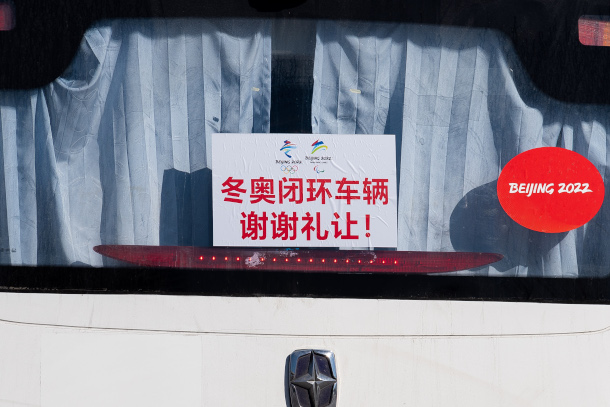
A sign on the back of a bus reads “Olympics Closed Loop Vehicle – Thanks for Making Way!”, while the red dot indicates the bus is a part of the Olympic “bubble”. (Photo: N509FX, Wikimedia Commons, CC BY-SA 4.0)
MA: We have been using pretty strict pandemic prevention measures. Like for example, I arrived in Beijing, and I had to take the acid test within 48 hours before arrival. And after arrive within 48 hours, I had to get another test. And also, you know, the closed loop concept, the athletes, coaches, yes, they are all kind of protected, basically cannot reach out to the outsiders. So this is all for safety concern. Over the past two years, we have all been following all these strict requirements willingly. I can't comment on how you know, the number is so big in the US, I guess it's different management or sort of thinking by the government of the two countries. I can just say that we are following what we believe is right.
CURWOOD: Well, yes, I mean, there certainly is a difference. And if the United States had the same number of people as China, we would have lost 3 million people to the disease. Now, there have been reports recently about the difficulties that Chongli, is that how I pronounce it, faces due to the COVID restrictions. At the same time, there haven't been many government subsidies for Olympics construction. In what ways do you think the Olympics might help stimulate future tourism in these areas that were built up for the Olympics?
MA: I think we can use Chongli itself as example. You know, Chongli used to be one of the poorest districts in China, I think was 16.8% of it's more than 10,000 residents living below the national poverty line. I think that figure I checked, it was by 2015. But now, you know, this mountain town has been transformed into a skiers' paradise. I remember reading a report saying now one in five people from Chongli is employed in the ski resort, or some business related to the Winter Games. So I think that will help the people, in the same time, will boost the local tourism industry.
CURWOOD: So what's the weather for the games looking like right now?
MA: The games will be held in three places: Beijing, Yanqing. And Chongli. And Beijing now highest temperature currently around three or four degrees and the lowest minus eight minus nine degrees centigrade. In Chongli and Yanqing that should be colder because most skiing events are held there. Should be minus 15 degrees centigrade.
China????????, the host country of the XXIV Olympic Winter Games, has entered the stadium. Gao Tingyu and Zhao Dan are the flag bearers!
— Beijing 2022 (@Beijing2022) February 4, 2022
Looking forward to seeing them and all the athletes compete at #Beijing2022!#Olympics #OpeningCeremony#TogetherForASharedFuture
???? GettyImages pic.twitter.com/1eqoEE4aBT
CURWOOD: Now we understand China has invested heavily in the sustainability of the Olympics this time around. Could you speak a little bit about this? I mean, how will these reforms potentially influence the way other cities pursue sustainable reforms in the coming years?
MA: Well, out of the 12 competition venues, six of them already existed, which means a number of venues, they were built for the 2008 Beijing Summer Games. So they are being reused, for example, the bird's nest and the water cube. So that can minimize the cost. So this mix of new and existing venues, it's spread across all the three different competition zones. Secondly, we are using all the low-emission carbon dioxide refrigeration systems at all the ice venues. And that's expected to cut emissions. That's the first time ever a Winter Olympics host country is doing it to all the venues. And as for transportation, we are using clean energy vehicles. So these are the energy saving and clean energy measures. I think for future influence, you know, host countries in the future are already preparing to be committed to it, they will be keenly watching on how Beijing is doing it, and maybe they will be taking notes, you know. So if we can make this into a really good green games, I think people will start to follow up, other host countries, they will try to do the same.
CURWOOD: So just to be clear, you're talking about using carbon dioxide as a refrigerant for keeping ice cold and skating rinks and curling places and such instead of the CFCs, which, of course, are strong greenhouse gases. That's what I'm understanding you're saying,
MA: Or put it this way. It's the first games in history to exclusively power all the venues with clean energy from renewable sources, and use carbon dioxide in ice-making procedures.
CURWOOD: So Natalie, how would you define the success of an event like the Olympics? I mean, in your view, how do you see this event living up to that?
MA: You know, in terms of organization, even the 2008 games is still fresh in everybody's mind. It's like yesterday. First, I think, to successfully host it, especially under the circumstance we are having now under the COVID-19 pandemic, to have it go on smoothly and most importantly, safely. It is our main goal. And also, you know, a lot of people who have been got involved in the 2008 Summer Games have been involved in this winter games too, like the opening and the closing ceremony director, Zhang Yimou, and also a lot of volunteers. So regarding participation, and the enthusiasm from the public, if everybody feel involved and feel proud, then that's a successful Olympics for us. And for the world, of course, if this Olympics can go on smoothly to show the world, we are still encouraging sports, healthy lifestyle, and that's a big success too.
CURWOOD: Tell me about any interesting developments or moments, athletics or otherwise, that we should keep an eye out for.
MA: If you're talking about Chinese, I have to admit that China has never been a very big player in Winter Games. Of course, we have our strong suits, like figure skating, and also short-track speed skating. But now I think there are some fresh young bloods. But also there's one particular name I want to mention, which is Gu Eileen, she is very hopeful to win gold medals in the skiing items.
CURWOOD: Indeed. Natalie Ma is a reporter with Shanghai Daily speaking to us from Beijing. Thanks so much for taking the time with us today.
MA: No problem, Steve. That's my pleasure. Thanks.
CURWOOD: And enjoy the games.
MA: Thank you. I will.
Related links:
- Natalie Ma’s website
- Beijing Olympics website
- IOC Sustainability Report
[MUSIC: Wu Man and Friends, “Nandere” on Wu Man and Friends, by J.Kytasty/arr. J. Kytasty/Wu Man, Traditional Crossroads Records]
Winter Olympics in a Warming World

The Beijing Winter Olympics is making artificial snow to create the conditions necessary for alpine sports events. (Photo: Max Mayorov, Flickr, CC BY-NC-ND 2.0)
BASCOMB: Skiing is a big part of the winter Olympics, but as the climate warms and droughts deepen people like Carmen de Jong are concerned about the sustainability of snow-dependent sporting events at the Olympics in general and in China in particular this year. Carmen de Jong is a hydrology professor at the University of Strasbourg in France and she is especially concerned about the environmental impacts of hosting such events in an arid region that gets very little natural snow. Carmen, please tell me about the climate and geography of the area where the skiing events are being held.
JONG: Yeah, so there are two venues, Yanqing and Zhangjiakou. Both of them are in a very dry climate with less than 400 millimeters of rainfall per year, and very, very little snow. So it's like less than an inch of snow per month. And the whole region has a lot of water scarcity problems. There are also lots of droughts, and the droughts have been becoming more severe over the last years. So it's really quite a harsh climate.
BASCOMB: And so if there's so very little natural snowfall there, that must mean that they will rely heavily on making snow. What are the environmental concerns associated with making snow, especially in this very dry region?
JONG: Yeah, so there's virtually no natural snow, so everything has to be produced. And that requires large amounts of water not only because of the 100%, artificial snow, but also because all the access roads have to be covered by snow in order for the vehicles to move. And because it's such a water scarce area, the water has to be pumped and piped uphill from very far away. So that's bound to have some effect on the local water needs for irrigation or maybe even drinking water. And actually the climate is not at all appropriate for snowmaking. Firstly, it's very windy. So there are high losses. So you have to produce a lot more snow to reach the same end product. Then, it's very dry, so there's lot of evaporation during snow making. And then there's another problem that the soil is so dry that the artificial snow doesn't stick to it. And the soil can't freeze; it lacks water. So the snow makers first have to inject water into the soil, make it freeze and then you can start producing artificial snow and putting it on top. So all in all, you require about three to four times the amount of water for snowmaking in the Peking venues compared to the Alps or the Rockies.
BASCOMB: Sure and that makes sense. And from what I understand, part of the Alpine course was built through a nature reserve. Can you tell us a bit about that, please?

As temperatures rise, artificial snow making, which requires vast amounts of water, has become the norm in many ski resorts throughout the world. (Photo: Fort Carson, Flickr, CC BY 2.0)
JONG: Yes, that's a very complicated story. Because in 2015, there were Chinese biologists that were alerting to the fact that the plans were to construct alpine ski runs in the core area of a nature reserve. And they protested against it. And then not much was being said about what happened from then onwards. And the whole issue was kind of silenced. But last year, I started comparing maps and Google Images of the sites and I realized that they had stayed at the exactly the same venues. They moved the boundaries. So they've relocated parts of the nature reserve. It's 25% of the nature reserve that has been declassified and moved. And unfortunately, the core area has been totally destroyed. So this is really very sad because they created the nature reserve to protect the golden lair part, the golden eagle, the also protected orchids, and so on. And also very special kinds of trees like the Mongolian oak. And the meltwater coming from artificial snow contains more minerals, more salts, more bacteria, remnants of diesel, wax from the skiers, and so on. So this mix will surely impact native vegetation. There are a lot of things being undertaken by the Olympic Committee. They are saying that they replanted the trees lower down. But it's very difficult to believe how trees that require a certain soil type, soil texture, moisture and climate can survive 1000 or 1500 meters further down below, and whether they can really survive from a year to year basis. But anyway, the natural habitat has been destroyed in that region. I think that's the main issue.
BASCOMB: Well, how would you say the games as they're shaping up in China compare to previous winter games in other countries? I mean, is China really that much worse? Or is this just sort of the price we pay every four years to host this sort of international event?
JONG: Well, none of the past games have been sustainable. And they've all been using artificial snow to a very large extent, like Sochi used 80% artificial snow, Pyeongchang more than 90%. The difference is that these venues did have natural snow. Nonetheless, the other games have also caused a lot of environmental destruction like Sochi in 2014, they had to import 14 tons of coarse grain salt from Switzerland to make the ski runs last another few days. If you look back at Vancouver 2010 all the artificial snow they prepared beforehand melted away. And they had to bring in bales of straw by helicopter and snow by helicopter to create artificial ski runs.
BASCOMB: You know, creating a new venue from scratch every four years seems inherently unsustainable, you know, there is this idea to create a couple of permanent locations to hold the Olympics. But with the changing climate, to what degree can we expect any city or region to be, you know, consistently suitable to host these games long-term going in the future?
JONG: Yeah, it would be a nice idea. But that's not going to happen, because the Olympic Games are all about prestige and proximity to large cities or capital cities. And it's going to be very difficult to find a site or some sites to permanently host the games because of climate change. So climate change is striking hard, in the US, as in the Alps and in Scandinavia. And most of the Alpine and Scandinavian venues are no longer candidates, because there's a lot of resistance from the local population, because of financial issues, because of environmental issues, because of traffic issues, and so on. But it would never happen to select some remote site in Greenland or in the Arctic, because it's just not feasible from an infrastructural point of view. And then the prestige factor is also missing.
BASCOMB: Well, moving forward and looking into the future of the Olympics, what kind of steps do you think Olympic officials should be taking to make the games more sustainable?
JONG: So a step forward, would be just maybe to share venues and to have less disciplines, and to tune down the games and maybe develop the Summer Games instead of developing the Winter Games.
BASCOMB: Well, scaling back the Olympics, I don't think that's going to go over too well, for you know, the athletes who look forward to this and you know, have staked their careers on these games and the Olympic Committee, you know, the host countries, the people that look forward to these games every four years.
JONG: Yes, for the athletes it's a big dilemma because it's their job, and they don't have a choice where they're going to but I think we're hearing a lot of voices from athletes as well that are a bit horrified by these white tongues and the brown landscape as they are landing in Beijing. I think they also would have the choice to maybe boycott the games if they seemed so unsustainable to them.
BASCOMB: Carmen de Jong is a professor of Hydrology at the University of Strasbourg. Thank you so much for taking this time with me today.
JONG: Thank you.
Related links:
- People’s Daily Online | “Beijing 2022 Winter Olympics set to become first Olympic Games fully powered by green energy”
- The Guardian | “Mounting concern over environmental cost of fake snow for Olympics”
- International Olympic Committee | “Beijing 2022 Pre-Games Sustainability Report outlines climate solutions, development of winter sports and regional regeneration in China”
- Olympics | “Beijing 2022 Olympic Venues”
[MUSIC: Kitaro, “Mercury” on Thinking of You, by Kitaro, Domo Records]
CURWOOD: Coming up – research finds some species of birds in the Amazon are shrinking in average size. That’s just ahead on Living on Earth.
ANNOUNCER: Funding for Living on Earth comes from you, our listeners, and United Technologies, combining a passion for science with engineering to create solutions designed for sustainability in aerospace, building industries, and food refrigeration.
[CUTAWAY MUSIC: Comotion, “Oh, Lei” on Head West, by Michael Kang, SCI Fidelity Records]
Beyond the Headlines
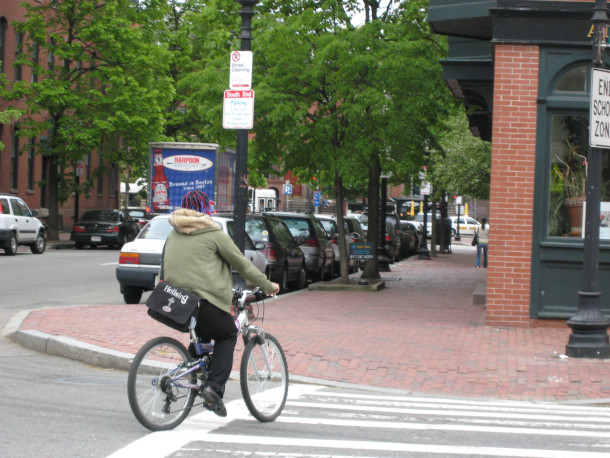
A cyclist crosses the road in Boston, one of the top cities for cycling growth cited by a bicycle advocacy group. (Photo: Design for Health, Flickr, CC BY 2.0)
CURWOOD: It’s Living on Earth, I’m Steve Curwood.
BASCOMB: And I’m Bobby Bascomb
Well, it's that time of the show again for a trip beyond the headlines with Peter Dykstra. Peter's an editor with Environmental Health News. That's EHN.org. And DailyClimate.org. Hey there, Peter, what do you have for us this week?
DYKSTRA: Hi, Bobby. There's a report from a nonprofit called the League of American Bicyclists. They cite five US cities where bike commuting is beginning to boom.
BASCOMB: Hmm. And what are those cities?
DYKSTRA: Well, we're gonna do a little guessing game with the audience here. While we talk this up for a minute, see if you can guess whether your town is on the list, or how many cities and towns you know, that would be bicycle-commuter friendly.
BASCOMB: Okay, well, let's give our listeners a little more information to go on. What makes a city or a town a boomtown for biking?
DYKSTRA: A lot of long-term planning, a little money, possibly more coming through the infrastructure bills as pushed by President Biden. But obvious things like bike lanes and streets, dedicated bike paths with no vehicle traffic, clearly marked pavement, pavement that's redone at least every 10 years. And the last one is access from bike lanes and paths to commuter trains and buses. I mean, those are all no brainers, but they're no brainers, here's your last hint, in mostly college towns.
BASCOMB: Ah ha, okay, well, I'm gonna guess at least one of them has to be Boston. I've been a bike commuter in Boston, and I think they've done a really good job of it. And it's only gotten better in the last five to 10 years or so.
DYKSTRA: Well, Boston tops the list. So you guessed right on that one. Additional cities include Chicago, the only city on the list that doesn't have a heavy, heavy presence as a college town. The others are Austin, Texas, Oakland, California, and Missoula, Montana.
BASCOMB: Missoula, Montana. That sounds surprising for some reason, I wouldn't have thought of it anyway.
DYKSTRA: Well, a bit like Boston, you don't expect a town that often has two feet of snow on the ground to be on a good list for bicycling.
BASCOMB: Yeah, yeah. Well, what else do you have for us this week?
DYKSTRA: Reports from the Amazon, that climate change may actually have a role in shrinking the size and weight of Amazonian birds.
BASCOMB: Hmm, what's going on there? Why are birds getting smaller in the Amazon?
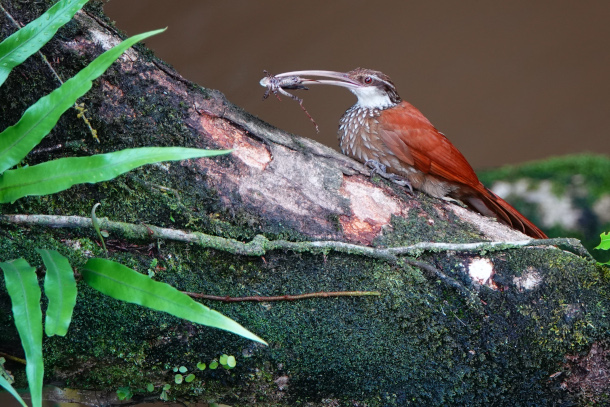
A long-billed woodcreeper nabs an insect for a snack in the Amazon. (Photo: Valentin, Flickr, CC BY-NC 2.0)
DYKSTRA: It may be a chain reaction in the ecosystem, with climate affecting insects. When there are fewer insects, the birds that tend to be getting smaller, largely involve birds that feed on insects on or near the rainforest floor. And those are the ones that are experiencing reductions of up to 2% over the last few decades, and the birds that can't compete with other birds are species that in the long run may be doomed.
BASCOMB: Well, we know that insects are in decline everywhere in the world. Seems unfortunately that the Amazon is no exception to that. Well, what do you have for us from the history books this week?
DYKSTRA: February 4, 1970, ground is broken for the Chernobyl nuclear station. That's a complex north of Kiev, in what was a part of the Soviet Union, is now the independent as far as we know, nation of Ukraine. The plant's first reactor started up seven years later in 1977. But it was the fourth reactor, in 1986, that exploded and burned in the worst nuclear power accident known to have occurred in history.

Chernobyl’s fourth reactor, seen here in 1982, four years before the explosion in 1986. (Photo: Joker345, Wikimedia Commons, CC BY-SA 4.0)
BASCOMB: Wow, wow. Yeah, it sort of seems like something in the distant past. But it's really not all that long ago. And, of course, we're still dealing with the repercussions of it. They are locally, anyway.
DYKSTRA: They are and it may also play a role in any speculated invasion of Ukraine by Russia. President Putin, of course, has played it close to the vest in terms of whether or not Russia will invade. If they do and they go for the capital city of Kiev, their route to make that invasion would come from the north, and that would put Russian troops heading directly through the Chernobyl exclusion zone, a large area still considered to be contaminated and off limits. There are some intelligence reports that say that Russian troops in that area are decked out with radiological gear, protective gear, and the only reason that they might need protective gear for radiation is if they were going through a contaminated zone. The only one worth mentioning is Chernobyl.
BASCOMB: Mm hmm. Doesn't take much to connect the dots there then. All right, well, thanks, Peter. Peter Dykstra is an editor with Environmental Health News. That's EHN.org and DailyClimate.org. We'll talk to you again real soon.
DYKSTRA: Okay, Bobby, thanks a lot. Talk to you soon.
BASCOMB: And there's more in the stories on the Living on Earth website. That's LOE.org.
Related links:
- Bloomberg CityLab | “5 U.S. Cities Where Bike Commuting Is Booming”
- Discover Magazine | “Climate Change Might Be Shrinking Amazonian Birds”
- Learn more about the history of the Chernobyl Power Plant
[MUSIC: Comotion, “Marshaul McKanger” on Head West, by Michael Kang, SCI Fidelity Records]
A Fight Over Rights of Nature in Florida
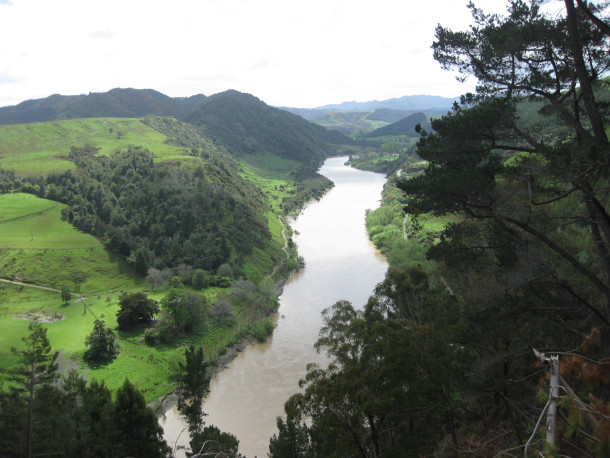
The Whanganui River is a major river in the North Island of New Zealand that has been granted rights of personhood. (Photo: Felix Engelhardt, Wikipedia Commons, CC BY 2.0)
BASCOMB: While many federal governments continue to drag their feet on seriously addressing the climate crisis local communities around the world have already begun taking action, in part, by enacting rights of nature laws. A doctrine rooted in indigenous thinking, rights of nature laws elevate nature to have the same legal rights as humans. Such laws have been enacted in some 17 countries around the world and more than 30 US communities. In Orange County, Florida a challenge to an existing rights of nature law is working its way through the court system. The case includes five water ways suing a developer. Katie Surma is a reporter for Inside Climate News who has been following the case and joins me now. Welcome to Living on Earth, Katie.
SURMA: Thank you so much, Bobby. It's great to be here.
BASCOMB: So what are the rights of nature? And how is it different from current environmental policy?
SURMA: The rights of nature is a somewhat unorthodox legal movement that aims to give elements of nature, so most often its rivers or other waterways, legal rights in the same way that humans have human rights. And it's different from traditional environmental law, which is usually human centered, or some people say anthropocentric?
BASCOMB: And how would the rights of nature maybe come into conflict with our notion of personal liberty and property rights, that sort of thing.
SURMA: In the United States, our Bill of Rights, it protects humans from government interference of some sort. And that puts a priority on things like property rights, and the rights of nature, you know, sort of lifts up natural beings on par with humans. And so those things will come into conflict with, you know, personal property, when you own land, you have the right to destroy it, generally.
BASCOMB: And there's a case right now in Orange County, Florida, that really highlights the potential for the rights of nature measures. Can you tell us about that case? What's going on there?
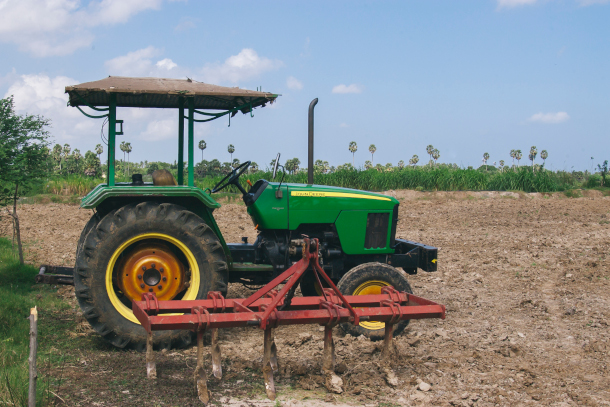
An agricultural farm in Nagapattinam, Tamil Nadu, India. (Photo: Matthew T Rader, Wikipedia Commons, CC BY-SA 4.0)
SURMA: Yeah, and this is a really interesting case, because it kind of cuts to one of the central issues that a lot of these rights of nature provisions in the United States are facing, which is that, you know, local communities are enacting laws that recognize the rights of nature. And at the same time, state legislatures are preempting them and saying you can't do that. In 2019, people started campaigning to recognize the rights of waterways. As this campaign is going on, the state legislature slipped a couple phrases into a bill that was about to pass, saying that Orange County can't do this. Well, voters went to the polls a few months later, and this is in 2020, during one of the most divisive elections, I think we've seen in a long time. And 89% of the County voters said yes, we want to recognize the rights of nature. And you had this sort of showdown between the state legislature and the county. Well, those waterways that now have rights filed a lawsuit against a developer, saying that the planned development project will impinge on the rights of these waterways, by polluting them by stopping water flowing. And so the case is now in litigation. And what the defendants are trying to do the defendants are the developer and the state environmental protection agency. They want to dismiss the case saying it's preempted. And also we haven't even issued the permit yet. So this isn't right for litigation. Plaintiffs the waterways and a gentleman named Chuck O'Neal, who's the main advocate behind these laws in Orange County in Florida, has thrown up a whole bunch of arguments to the court to try to make this law stick and enforce the rights of the waterways. And, and one of the things that they're arguing is that the state can't preempt this law that we have an inherent right as a charter county to self-govern, and that the state is going to enact environmental legislation, that it's a floor, not a ceiling. So a floor being the basic minimum, and local communities can then enact environmental protection that's more stringent. And this is something that's come up in Florida in a number of other areas. So local communities trying to act more stringent laws on mask mandates, on banning straws, for instance, sunscreen that has chemicals in it that kill coral reefs, and the state trying to preempt those laws. So it's an interesting issue. And it's going to be really interesting to see what happens.
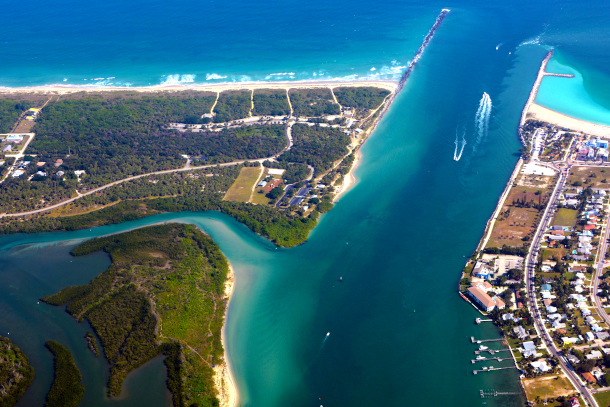
The Fort Pierce Inlet in Fort Pierce, Florida. (Photo: D Ramey Logan, Wikipedia Commons, CC BY-SA 4.0)
BASCOMB: Florida is an interesting example. I mean, it's not exactly a blue left-leaning state that you might expect to get behind something like this. The state did vote for President Trump, though Orange County, I understand went for President Biden. Why do you suppose voters there are so persuaded by this argument about the rights of nature?
SURMA: Sources there have told me is that Florida in particular people there are very connected to the environment, it's not only huge for the economy, tourism is a big chunk. But Florida—it's beautiful. People love their natural surroundings, and they see what's happening. For instance, a major problem are toxic algae blooms that, well, they can be naturally occurring. They're fueled by agricultural runoff. And so, when those algae blooms happen, it sucks up oxygen in the water, it kills off in one case 1000s of tons of wildlife. People see it, they smell it, it hurts human beings too, and they want to stop it. And so whether you're left right center somewhere else, people are getting behind this idea because they see it happening. They're experiencing it themselves and they know something's wrong.
BASCOMB: Well, it's easy to see how maybe industry and agribusiness wouldn't be too happy with nature having rights in this way. What kind of pushback are you hearing?
SURMA: Again, what sources are telling me is that the agricultural business in particular has pushed back. They were also a big player in Ohio, where folks in Toledo tried to enshrine the Lake Erie Bill of Rights protecting Lake Erie. It's threatening to business, you know. If nature has legal rights, then people and businesses and the government are going to have new obligations.
BASCOMB: Well, what would if nature had rights, especially waterways that we've been talking about? What would that disallow? I would imagine, you know, pollution. But does that also mean fishing? You know, recreating on the river? Where is the line of what's allowable?
SURMA: Yeah, advocates say, you know, this isn't about criminalizing or prohibiting cutting down a tree or shooting a deer. It is about maintaining the integrity of ecosystems as a whole. So making sure that they can regenerate because right now, the pace of change, you know, from human pollution and just humans acting on their environment, it's outpacing the ability of ecosystems to adjust and to keep going. So the idea is not, you know, an ant is going to have rights and it's going to stop a major development project. It's, you know, elevating the interests of nature to a place where it has a greater say in governance, governing decisions, what projects get greenlighted and what doesn't. No one really knows how this is going to work out because it's a new legal idea. And we kind of have to wait and see how, you know, the courts, the courts implement it.
BASCOMB: Katie Surma is a reporter with InsideClimate News. Katie, thank you so much for chatting with me today.
SURMA: It was my pleasure. Thank you for having me.
[MUSIC: Dave Matthews/Tim Reynolds, “#41” on Live at Luther College, by Dave Matthews, Bama Rags/RCA]
Boundary Waters Mining Leases Canceled
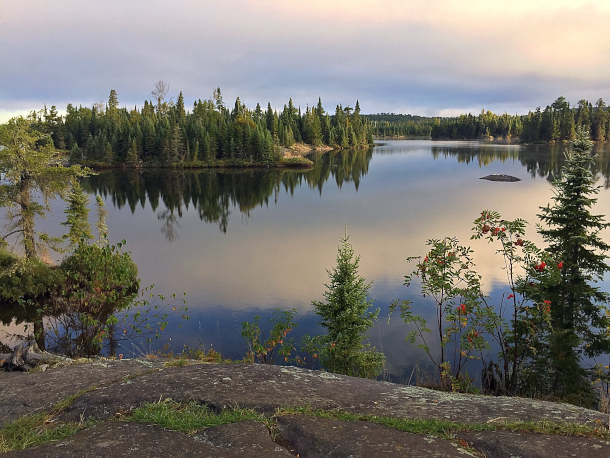
Morning light on South Temperance Lake in the Boundary Waters Canoe Area Wilderness (Photo: briandjan607, Flickr CC BY-NC-ND 2.0)
BASCOMB: The Boundary Waters Canoe Area is more than a million acres of forests, lakes, and streams in Northern Minnesota. It straddles roughly 150 miles along the US Canada border, hence the name Boundary Waters. It’s also close to Voyageurs National Park as well as state and provincial parks in Minnesota and Ontario. The area is a mecca for hikers, campers, canoeists and mine developers. For years Twin Metals Minnesota has sought to mine for copper and nickel near Ely, Minnesota just outside the Boundary waters, but the Biden administration recently cancelled two federal mine leases the company needs to begin operations. That decision reverses the green light for the project given by the previous Administration. Dan Kraker is a reporter for Minnesota Public Radio and has the story.
KRAKER: For years the proposed Twin Metals mine has bitterly divided people in and around Ely. Supporters have pushed for the hundreds of high-paying jobs the mine would create and billions of dollars it would pump into the region's economy. Opponents, including canoe outfitter Steve Piragis, have argued pollution from the mine would devastate the Boundary Waters and the recreation-based economy it supports.
PIRAGIS: This represents a major lifting of kind of that black cloud that's hung over Ely for maybe 10 years now, the copper-nickel has put there, economically and environmentally.
KRAKER: Twin Metals has proposed a $1.7 billion mine along the shore of Birch Lake, a few miles east of Ely, just south of the Boundary Waters Canoe Area Wilderness, and it's already spent $500 million developing it. The company's plan submitted to state and federal regulators depends in large part on two federal mineral leases the government first issued more than 50 years ago. But now the Department of the Interior says those leases are no longer valid, after determining they were improperly reinstated and then renewed by the Trump administration.
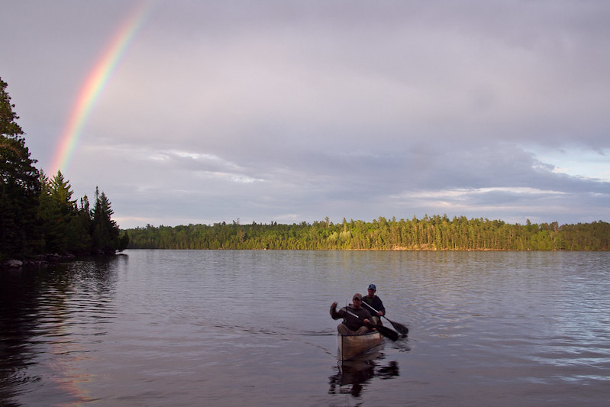
People canoeing at Oyster Lake in the Boundary Waters while a rainbow crosses the sky (Photo: A. Strakey, Flickr CC BY-NC-ND 2.0)
LEE: We think this decision is awesome.
KRAKER: Jack Lee is executive director of the Voyager Outward Bound School located outside Ely, near Twin Metals' proposed mine. He says the school has taken thousands of students into the wilderness over the past 55 years.
LEE: The proposed Twin Metals mine would have very likely polluted the Boundary Waters, and that would have ended our ability to serve our mission and serve all these young people. We've considered other locations but there's nothing, nothing like the untouched, pure Boundary Waters.
KRAKER: In a statement Twin Metals says it will challenge the lease cancellation. It called the decision a political action intended to stop Twin Metals without conducting the environmental review prescribed in law. That review process began when Twin Metals submitted its mining plans to state and federal regulators in 2019. Brian Hanson, Chair of the group Jobs for Minnesotans, says it should be allowed to continue.
HANSON: We want our government officials, our regulators to follow the process. Nothing more, nothing less. We just want a fair process. We want these projects to get reviewed using science, not undermined using politics.
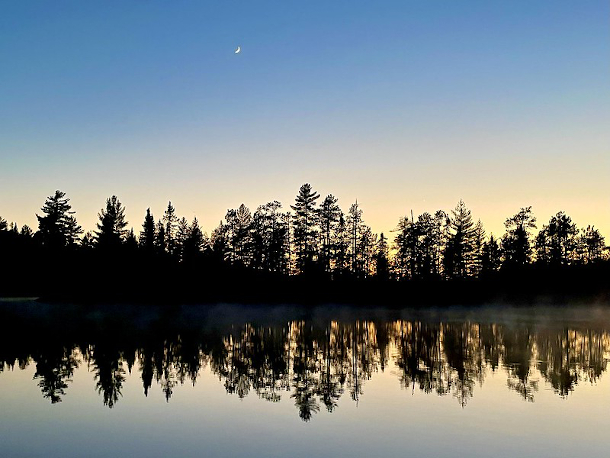
Silhouetted trees at dusk in the Boundary Waters (Photo: briandjan607, Flickr CC BY-NC-ND 2.0)
KRAKER: The Interior Department decision is the latest in a long legal back and forth over the mineral leases that spanned the last three federal administrations. The Obama administration first declined to renew the leases back in 2016. But the Trump administration reversed that decision. Now this Biden administration move once again leaves Twin Metals without its two federal mineral leases. In a separate effort, the Biden administration has also proposed a 20-year moratorium on new copper-nickel mining proposals within the watershed of the Boundary Waters, in the same area Twin Metals wants to dig. The government says it's taking that step because of the pollution risks mining poses to the Boundary Waters. Mining supporters say together, those efforts block projects that could provide important metals needed for wind turbines and electric car batteries.
ONGARO: The Biden administration is, you know, talking out of both sides of its mouth.
KRAKER: Frank Ongaro is executive director of Mining Minnesota.
ONGARO: On one hand, it wants domestic critical minerals for a supply chain to address climate change. And on the other hand, it's locking us out of the vast majority of the U.S. supply of these metals. That's extremely hypocritical.
KRAKER: Ongaro declined to speculate on the future of Twin Metals. But he says northeastern Minnesota is a patchwork quilt of federal, state and private mineral ownership, and it's difficult to develop an economically viable project without access to all of them. In a statement, the Minnesota DNR said the federal action, quote, "raises significant questions about the feasibility of Twin Metals' project as proposed." The agency says it will carefully consider what this means for the state
CURWOOD: That story from Dan Kraker comes to us courtesy of Minnesota Public Radio.
Related links:
- Minnesota Public Radio | “Biden administration cancels Twin Metals’ leases to mine near Boundary Waters Canoe Area”
- Department of Interior statement on the lease cancellation
[MUSIC: Rikard From, “It’s an Upright Thing”, Rikard From]
CURWOOD: Living on Earth is produced by the World Media Foundation.
Our crew includes Naomi Arenberg, Paloma Beltran, Iris Chen, Gabriella Diplan, Jenni Doering, Mark Kausch, Mark Seth Lender, Don Lyman, Aynsley O’Neill, Sophia Pandelidis, Jake Rego, Teresa Shi, and Jolanda Omari.
BASCOMB: Tom Tiger engineered our show. Alison Lirish Dean composed our themes. You can hear us anytime at L-O-E dot org, Apple Podcasts and Google Podcasts, and like us, please, on our Facebook page - Living on Earth. We tweet from @livingonearth. And find us on Instagram at livingonearthradio. I’m Bobby Bascomb.
CURWOOD: And I’m Steve Curwood. Thanks for listening!
ANNOUNCER: Funding for Living on Earth comes from you, our listeners, and from the University of Massachusetts, Boston, in association with its School for the Environment, developing the next generation of environmental leaders. And from the Grantham Foundation for the protection of the environment, supporting strategic communications and collaboration in solving the world’s most pressing environmental problems.
ANNOUNCER 2: PRX.
Living on Earth wants to hear from you!
Living on Earth
62 Calef Highway, Suite 212
Lee, NH 03861
Telephone: 617-287-4121
E-mail: comments@loe.org
Newsletter [Click here]
Donate to Living on Earth!
Living on Earth is an independent media program and relies entirely on contributions from listeners and institutions supporting public service. Please donate now to preserve an independent environmental voice.
NewsletterLiving on Earth offers a weekly delivery of the show's rundown to your mailbox. Sign up for our newsletter today!
 Sailors For The Sea: Be the change you want to sea.
Sailors For The Sea: Be the change you want to sea.
 The Grantham Foundation for the Protection of the Environment: Committed to protecting and improving the health of the global environment.
The Grantham Foundation for the Protection of the Environment: Committed to protecting and improving the health of the global environment.
 Contribute to Living on Earth and receive, as our gift to you, an archival print of one of Mark Seth Lender's extraordinary wildlife photographs. Follow the link to see Mark's current collection of photographs.
Contribute to Living on Earth and receive, as our gift to you, an archival print of one of Mark Seth Lender's extraordinary wildlife photographs. Follow the link to see Mark's current collection of photographs.
 Buy a signed copy of Mark Seth Lender's book Smeagull the Seagull & support Living on Earth
Buy a signed copy of Mark Seth Lender's book Smeagull the Seagull & support Living on Earth

